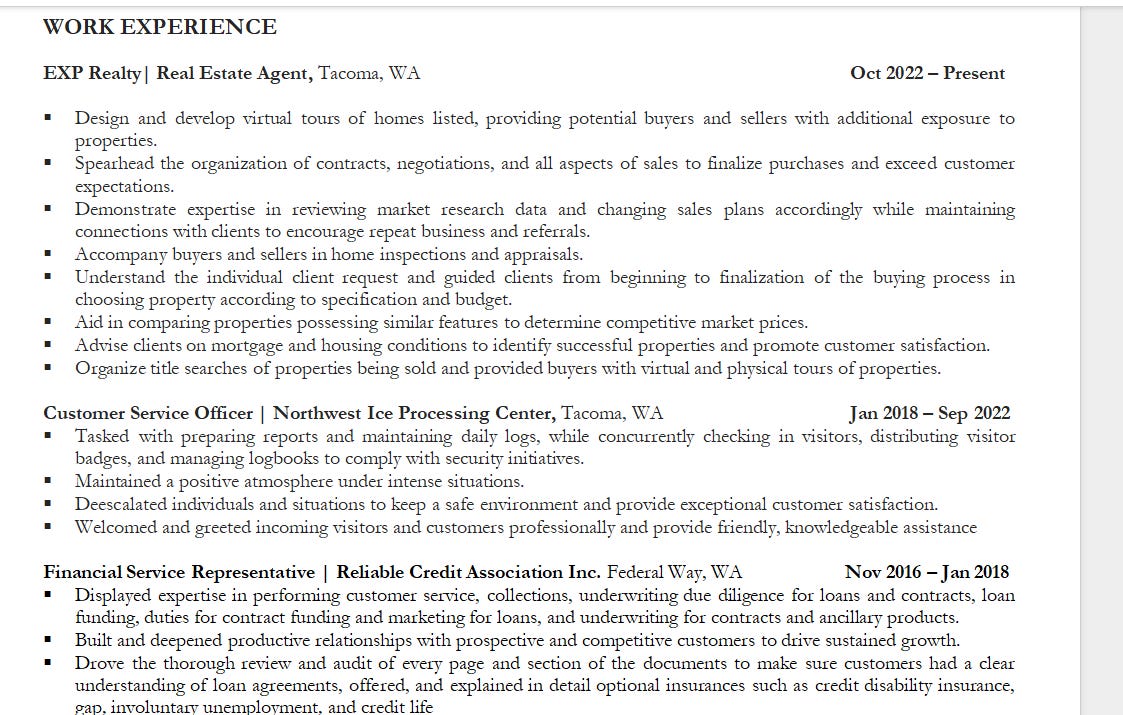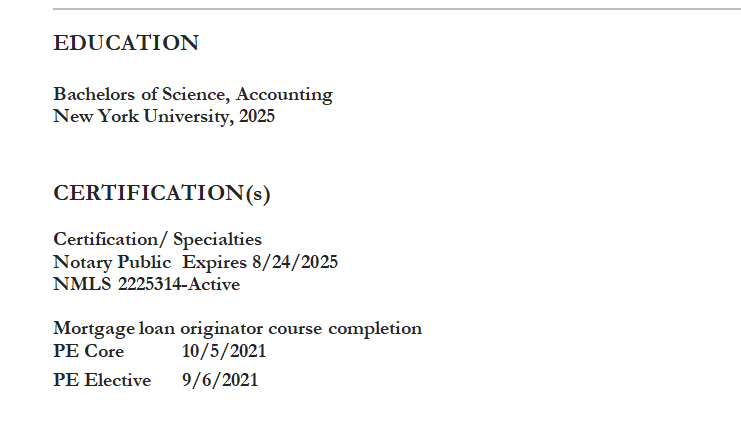Keynote
If you are proud of your CV and the way it looks, thank you for opening this newsletter, you can close it now or skip to other parts. But if you’re part of the misfits, the outlaws, the ones with terrible or not-so-great CVs/resumes (like me) and want to give your profile a face lift, then I wrote this newsletter with you in mind. While we’re at it, we’d have fun.
If you’ve never shared my newsletter before, this is one to actually share!
Pssst! I have a word for you here ⬇️⬇️⬇️
What to expect in this newsletter?
The proper way to write your CV
Cybersecurity levy explained
Culture shocks (Lagos vs Abuja).
THE PROPER WAY TO WRITE YOUR CV
Before I start this introduction, there’s one line I remember I said I was going to use. So here goes.
‘It’s your bad CV that’s causing you CV-nish with your recruiter.’ Get it💀? If you don’t, your humour is broken and I will not be explaining. I’m too good. My God! 😭😂
Okay okay, to be serious, I will be talking about the parts of your CV/Resume that needs attention. But here’s the question, why should you trust me? I’d give you the reasons.
You actually shouldn’t trust me (classic action movie line).
I’ve worked as a freelance resume writer and I kid you not when I say I’ve written over 400 resumes (with a small percentage of that number being Nigerians, una no like to dey pay for resume, mtcheeew). I lied when I said I was a misfit like you, I was trying to make you feel less bad. You and who outlaw? 😂😂💀💀
I have used these principles and methods on my resume and applied for jobs and tbh, I’ve gotten decent feedback from recruiters.
You should also know that a good resume/CV will get you in front of the door. What you do when they ask you to sit down is up to you. So this is an attempt to help you get through that door.
If these reasons don’t convince you enough, thank you very much for contributing to my open rate. (I’m joking o, read till the end).
What is a CV?
I’m not here to give you a dictionary definition of what a CV is, you have google, ChatGPT and Meta AI for that.
In simple terms, your CV/Resume is that thing you use to pitch yourself and your abilities in written words. It’s that quick way of saying “hey, I’m better than everyone else that might be applying to fill this role” when you use it to respond to a job ad and when you send your resume/CV at times where there was no vacancy, it’s your way of saying “I’m that guy you never knew you wanted.”
Notice I’ve been using Resume and CV interchangeably. I’ll tell you the difference. A resume is a………. You know what? Let me just use Meta AI for this one, and I’ll show the result below.
You have no business having your resume longer than 2 pages especially if you’re not a CEO, or an Executive with 15 to 20 years of experience. If you’re into Medicine and Engineering where you have to list publications, and projects respectively, then a CV is best. You don’t want to leave out the good stuff.
Also the pronunciation for this ‘resume’ is not /ree-zewm/ it’s /reh-zew-may/ (because since I saw someone pronounce Archive as Achieve, I don know say problem dey). The pronunciation is below.
What parts of your CV should you pay the most attention to?
Contact Information
Profile Summary
Core Competencies
Job Experience
Education & or Certifications
It should be in the order written above, anything outside that is just a waste of “sans serif” and “times new romans.”
Contact Information
Depending on the CV/Resume format you’re using, you’re always meant to put your contact information - it’s how the recruiter will be able to reach you if they see potentials.
Within this section, you want to avoid anything not necessary. You’re going to have:
Your name - you should be able to find somewhere you put your job role after your name, most templates will have a place for you to do that.
Your phone number
Your email address
And your address - The address part is trickery. Please, please, and please, don’t add your full house address, just your local govt and state is fine. The reason is because recruiters are everyday people, and you don’t want your information out there for free, we can’t tell who’s sane or not, forget the suit and tie. Many are mad, few are roaming.
It should look something like this:
Profile Summary
This is where it all goes down, the first few lines that have to make a difference and capture the attention of your recruiter. If you miss it from this point, your resume goes into the bin. Your profile summary as the phrase implies is you clearly stating what you can do and why you will be an asset to the company over the next person applying.
It should not be written with pronouns (‘I am a,’ ‘I am very vast.’ Bla bla bla, eeeww brother, what’s that brother?).
Here, you want to make sure your sentences are within 5 to 8 lines max. So no buzz words, no ‘big big grammar’ that mean nothing, just straight to the point. The profile summary must, however, rhyme with the job you are applying for. Which brings me to the next point.
Make sure your resume is tailored to the role you are applying for.
In the words of Albert Einstein “Only a mad man (which would be you if you don’t listen to my advise), will do the same thing over and again with an expectancy of a different result.” You can’t use your Executive Assistant resume to apply for a Product Manager role, you have to make certain edits.
It should look something like this:
Core Competencies
This part should not be stressed too much. All you need is to write out about 10 to 15 skills that are related to that role. Please, again, don’t try adding fast typing skills, great listener, punctual and honest - No one effing cares. It has to be very targeted.
It should look something like this:
Work Experience
At this point it should be a no-brainer. Your work experience must align with the role you’re applying for. So, if you have a million experiences, you will need to only use the ones relevant to the role you’re applying for.
There are a few house rules for the work experience section I will need you to pay attention to them below.
Arrange your experiences starting from your most recent to not-so-recent ones.
For the sake of order it’s always good to list your duties within the companies you’ve worked as bullets.
For the most recent jobs (the ones where you still work), your should write in present tenses.
Always start your resume with a verb, a strong verb. Also look for words that are not overly ‘big big words’ but synonyms of regular verbs.
To make your resume better you can and actually should add statistics to it. Something like ‘improved efficiency by 20%......,’ ‘reduced processes by xx hours…..,’ ‘saved the organization $1 trillion by implementing……’ Just make sure you’re not lying and actually have a way to prove the numbers.
Any place you currently don’t work, you use the verbs in past tenses.
Don’t include experiences that you have that are not relevant to where you’re applying to.
It should look something like this (also pay attention to the formatting).
Education & or Certifications
Finally, this is the part where you show us your educational background and your certifications, if you have any.
Fun Fact! - Did you know that if you didn’t go through secondary/high school you can’t gain admission into a university? Oh it’s not a fun fact, you knew? So why the h*ll do you people like putting your secondary/high school information there? You’re wasting space and the time of the recruiter, just go straight to your ND, HND, BSc, PDG, Masters, PhD, and the rest in the order that you have them. Only include tertiary institution information.
This part shouldn’t be hard for you. It should be something like this.
I hope this actually helps you. I will provide the template used, which is in fact a template I’ve used many times for some of the people I’ve worked with. From here, you can ask your questions in the comment section.
Sometimes, we are the author and finisher of our problems, not village people.
- Albert Aiizack
Cybersecurity Levy explained
I will have to move this part to next week. This resume explanation part has taken up most of the space, and I’m sorry, but trust me to make it up to you next week. Please share this newsletter with everyone who will need it. Do not gatekeep good things please.
I have other things to say about writing your resume, I just need to know that you guys want to hear it. If I get about 12 people to place a comment, I would proceed. I’ll make another one for next week. Meanwhile, I have attached this resume template here - https://docs.google.com/document/d/1A97q5sOY5-GeApvnC6bwr68XkzBj-sIy/edit?usp=sharing&ouid=116991742308998146813&rtpof=true&sd=true
Also, I need you to join a community for me. We are about 300 but the goal is to get to 2000 (for now). Perks of joining the community is that you have discounts to work stations, you have job opportunities before they go live, there are videos and access to learning tools, masterclasses and access to mentors and a whole lot of other things.
To join, click this link please - https://www.eventbrite.com/e/code-cash-crop-50-financing-the-hidden-middle-tickets-845821112717?utm-campaign=social&utm









These breakdowns are enough to write a Resume and CV. This is worth a zillion
Thank you very much Aiizack, I'm a new here so you would be hearing more from me😁.
I learnt a lot from misspelling my Gmail on my CV and that period wasn't funny because I thought I wasn't doing enough for them to get back to me.
But we learn everyday and we have the likes of you making it easier for the younger ones.
Thanks for all you do, Welldone and this is a great one.
Please share more points, I'm here for itttt.